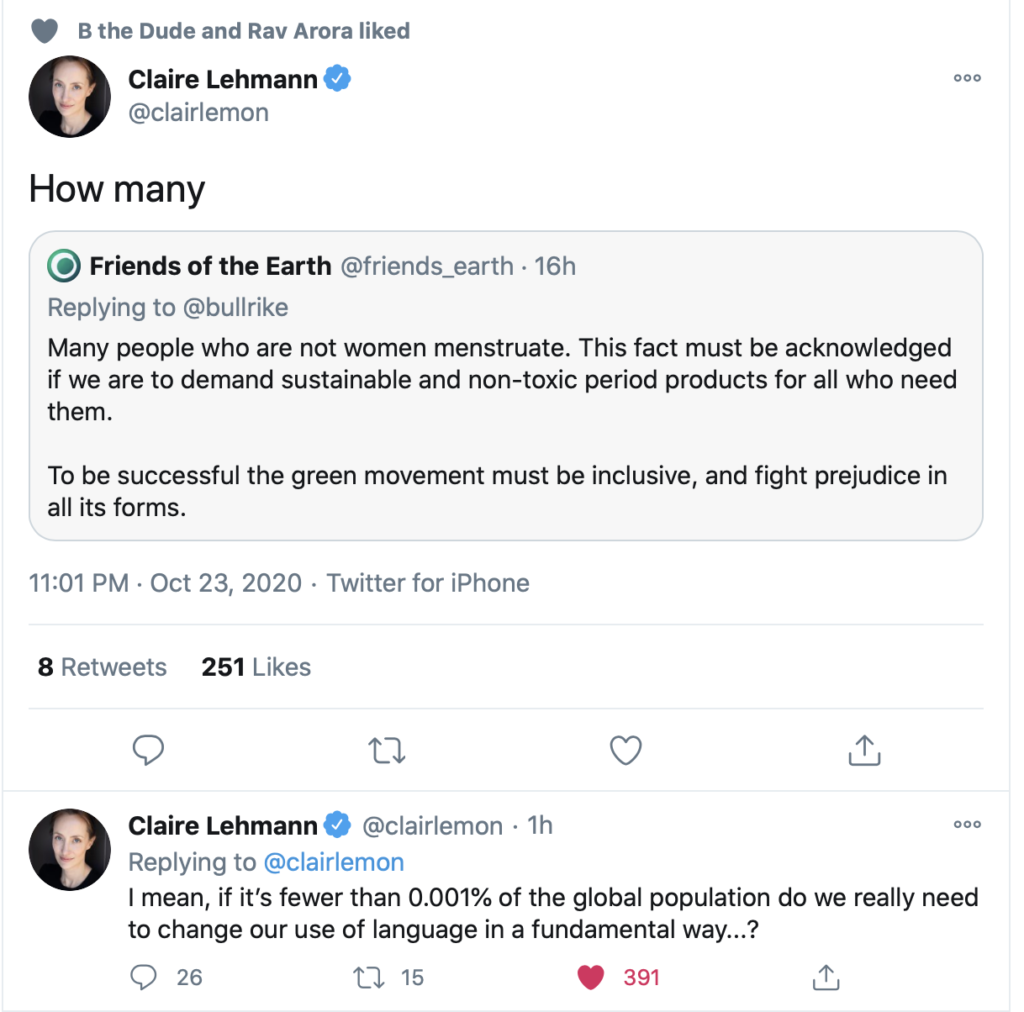Claire Lehman (Founding Editor of Quillette) is asking a perfectly honed question here:
Here’s an analogy that I’ve often used in conversation: Let’s start with some numbers: “In the United States, there are 41,000 registered persons who had an amputation of hand or complete arm.” Since there are about 328M people in the U.S., this means that 1 out of 10,000 Americans has only one arm. Does that mean that when I’m presenting to a group that I would be bigoted and insensitive if I ever said, “Raise your hand if you have a question or comment”? Does the fact that only .01% of the population lacks an arm (and that 9999/10,0000 have two hands) mean that I need to change my language? Can the rare people who lack an arm really not figure out that I’m not making fun of them or insulting them in such a situation? Who is being unreasonable?
I’ll conclude . . . what are those numbers for carefully diagnosed gender dysphoria (versus self-reports by high schoolers)?
Gender dysphoria occurs in one in 30,000 male-assigned births and one in 100,000 female-assigned births.[46] Estimated rates of those with a transgender identity range from a lower bound of 1:2000 (or about 0.05%) in the Netherlands and Belgium[47] to 0.5% of Massachusetts adults.[48] From a national survey of high-school students in New Zealand, 8,500 randomly selected secondary school students from 91 randomly selected high schools found 1.2% of students responded “yes” to the question “Do you think you are transgender?.”


